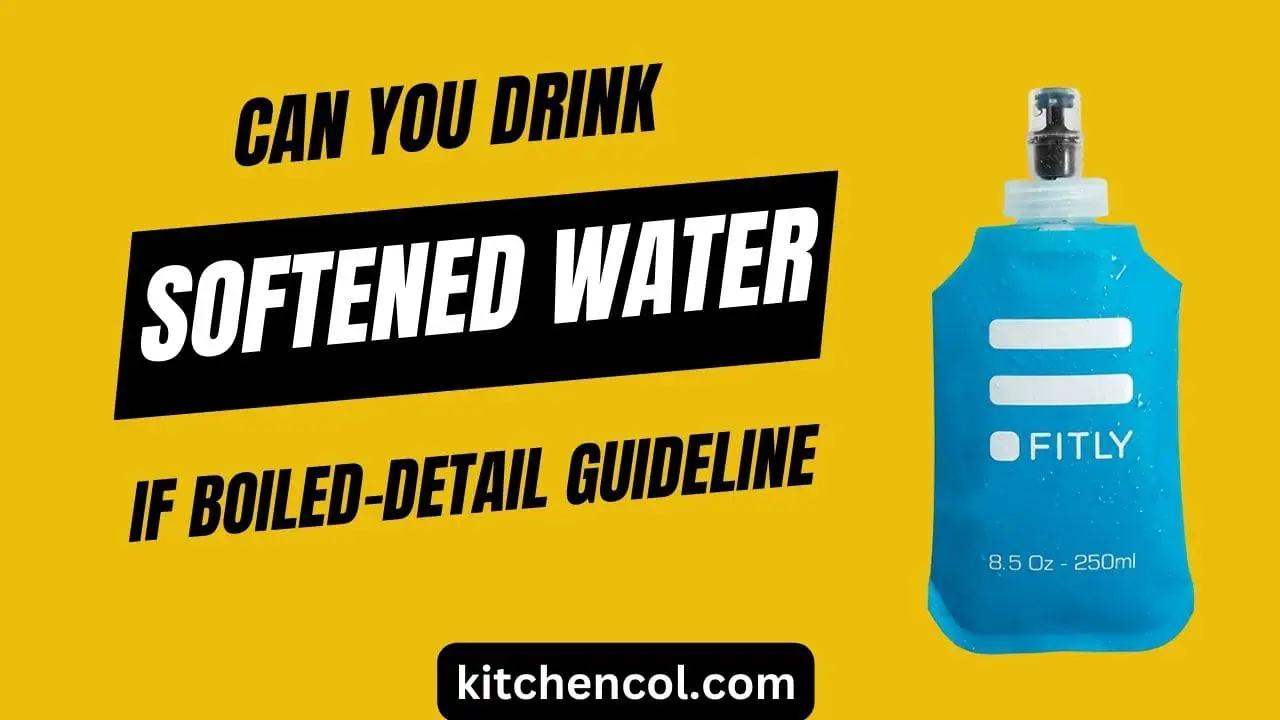Water is an essential part of our daily lives and it is important to ensure that the water we consume is safe and free from contaminants. One common method of treating water is through the process of water softening, which removes minerals that can cause hard water.
However, there may be concerns about the safety of drinking softened water. In this article, we will explore the topic of whether or not it is safe to drink softened water that has been boiled. We will discuss what softened water is, the potential risks associated with drinking it, and whether boiling the water can remove any potential dangers.
The purpose of this article is to provide information on the safety of drinking softened water and to help readers make informed decisions about their water consumption.
What is softened water?
Softened water is water that has been treated to remove minerals such as calcium and magnesium, which can cause hard water. Hard water can lead to a variety of problems, such as the buildup of mineral deposits in pipes and appliances, and can make soap and detergents less effective.
One common method of water softening is through a process called ion exchange. During ion exchange, water is passed through a bed of resin beads that are charged with sodium ions. As the water flows through the bed of resin, the calcium and magnesium ions in the water are attracted to the resin and exchange places with the sodium ions.

This results in the removal of the minerals that cause hard water and the addition of sodium ions. This process is called ion exchange and the water is considered to be “softened” because it now has a lower mineral content and is less likely to cause the problems associated with hard water.
It is worth noting that softened water is not the same as purified water, which goes through more rigorous filtration and purification methods. Purified water is free of dissolved minerals, bacteria, and other impurities.
Does boiling softened water remove salt?
Boiling softened water will not remove the salt that is used in the water-softening process. Water softening involves the removal of minerals such as calcium and magnesium that can cause hard water, through a process called ion exchange.
During this process, sodium ions are added to the water to replace the minerals that are removed. Boiling water does not remove the added sodium ions, so the water will still be considered “softened” even after boiling. However, it is worth noting that boiling water will remove any bacteria, viruses, or other microorganisms that may be present in the water.
The potential risks of drinking softened water
There are some potential risks associated with drinking softened water, although the overall safety of drinking softened water is still a topic of debate among experts.
One of the main concerns with drinking softened water is its high sodium content. During the ion exchange process, sodium ions are added to the water in order to replace the minerals that are removed. This can result in a significant increase in the sodium content of the water. For individuals on a low-sodium diet, or those who are at risk of high blood pressure, drinking softened water can be a concern.
Another concern is that softened water can also contain other chemical by-products such as chloride. These by-products are used in the ion exchange process and are present in the water in small amounts. Long-term consumption of water with high levels of chloride could potentially lead to health risks.
Additionally, softened water may contain less beneficial minerals such as calcium and magnesium, which can be beneficial for human health.
It is important to note that the potential risks of drinking softened water are still being studied, and more research is needed to fully understand the effects of long-term consumption. Consult with your doctor or a water expert before making any decisions about your water consumption, especially if you have a health condition or are concerned about the water quality in your area.
Boiling softened water
Boiling softened water can be an effective way to ensure that the water is safe to drink, as it will kill any bacteria, viruses, or other microorganisms that may be present in the water. However, boiling the water will not remove the added sodium ions or other chemical by-products that may be present as a result of the water-softening process.
Boiling water will cause the water to evaporate, and as a result, the concentration of dissolved minerals, including sodium, will increase. This means that the water will have a higher sodium content after boiling than before boiling. This can be a concern for individuals on a low-sodium diet or those who are at risk of high blood pressure.
Boiling softened water will not remove chemical by-products such as chloride, so if they are present in the water, they will still be present after boiling.
It is also worth noting that boiling softened water will not remove any other contaminants that may be present in the water, such as pesticides or heavy metals. If you are concerned about the quality of your water, you may want to consider using a water filter or a reverse osmosis system to remove these contaminants.
Also Read: Can Zero Water Make You Sick-Explained
Final Words:
In summary, boiling softened water can make it safe to drink by killing any bacteria, viruses, or other microorganisms that may be present in the water. However, it will not remove the added sodium ions or chemical by-products that are present as a result of the water softening process, and it does not remove other contaminants such as pesticides or heavy metals.

My name is Manan Bukhari and I am an expert in reviewing kitchen products for years. I have a passion for testing multiple gadgets especially related to home & kitchen. I love to spend my free time in resolving issues if I face some in any of my daily use things. I have fixed multiple gadgets of my home on my own without any assistance and that thing gave me confidence to make a blog on troubleshooting of items that are for daily use to assist you folks. Even my wife praises me for having such talent. I always explore new machines on my own because this thing fascinates me.



